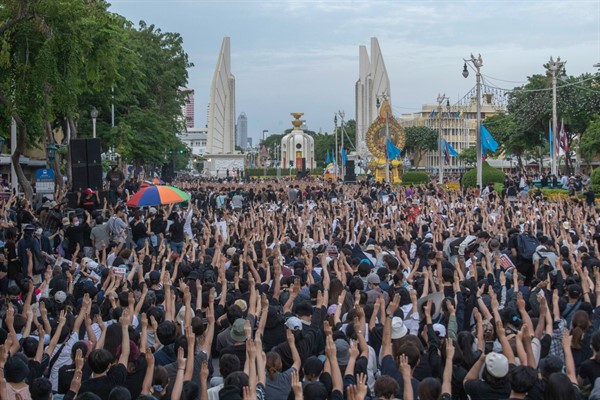
Popular protests are on the rise, and they are increasingly going global. Over the past three years, popular movements demonstrating against fiscal austerity and corruption have brought down governments—in democracies and authoritarian regimes alike—from Europe and Latin America to Africa and Asia. And with the advent of new communication technologies and media platforms, what happens anywhere can be seen everywhere. The messages and actions of pro-democracy protesters in Hong Kong, for instance, inspired and guided demonstrators in other continents.
The Black Lives Matter protests in the United States during the summer of 2020 were particularly resonant. Building on centuries of international abolitionist and anti-colonialist protest, the demonstrations, sparked by the May 2020 killing of George Floyd by a white police officer who kneeled on his neck for nearly eight minutes, spread rapidly around the world. In addition to standing in solidarity with U.S. protesters, demonstrators in Europe, South America and Asia connected the movement to their own experiences of colonialism, racism and state violence that have been perpetrated by their governments.
New communication technologies and media platforms are not only raising awareness. They are also enabling movements in different countries to learn from and engage with each other. Thailand's leaderless pro-democracy protest movement was connected to groups guiding similar efforts in Hong Kong. There is some concern, though, that the ease with which protest methods and tactics can be shared might obscure the amount of work required to organize effective movements that can successfully achieve political change. As a result, nascent efforts could splinter or fail because protesters are not adequately prepared to maintain them, particularly when they are challenged by government forces.
Meanwhile, governments are actively looking to contain the rise in civil resistance, deploying strong-arm tactics and using the coronavirus as a pretext to curb demonstrators and arrest activists and journalists—a strategy deployed from Algeria to the Philippines. Other repressive regimes, like Russia, Belarus and Saudi Arabia, target dissidents for violence and abduction abroad, calling global attention to the practice known as transnational repression.
No comments:
Post a Comment